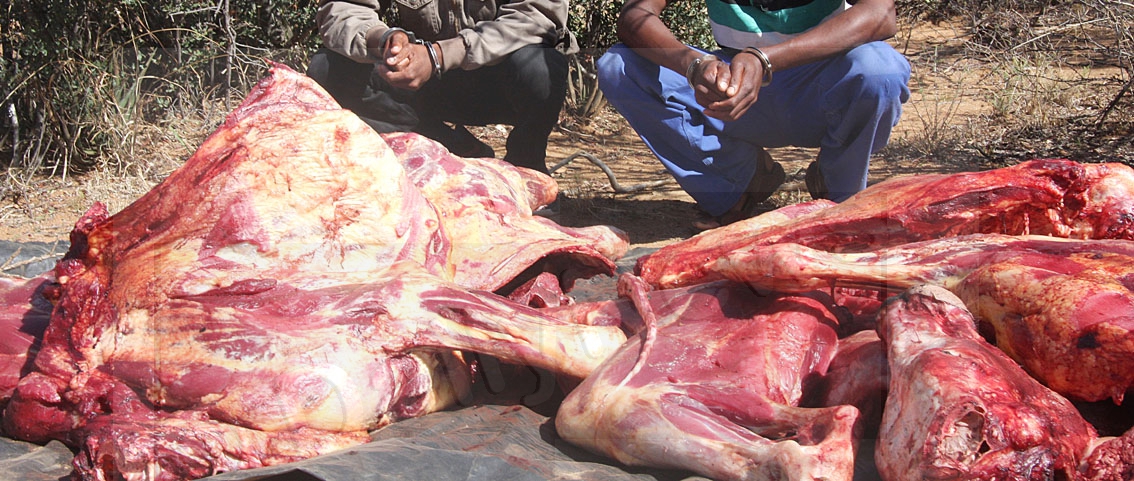Botswana plans to export electricity
17 Nov 2022
Once the Integrated Resource Plan (IRP) is implemented, Botswana will be a net exporter of electricity with firm power exports.
Speaking on behalf of the Minister of Minerals and Energy, the Minister of Communications, Knowledge and Technology Mr Thulagano Segokgo told Parliament that an IRP was developed and launched by government in November 2020 to provide a projection of electricity demand for the country up to 2040 and power generation projects to be implemented to meet the projected demand.
He said the plan included primary energy sources and technology to be deployed to provide the required electrical energy in a sustainable manner.
“The technologies included clean coal, solar, wind and gas and when implemented the country will have surplus electricity for export to other countries in the Southern African region,” he said.
Mr Segokgo said the average annual electricity demand was approximately 4 000 Gigawatt hours (GWh) while the average local electricity generation stood at approximately 2 500GWh per year and 1 500 GWh imported annually to supplement local generation.
He said the country at times exported electricity during off-peak load periods depending on the performance of Morupule B power station.
He added that to date Botswana has exported 84 980 MWh to neighbouring countries through the Southern African Power Pool electricity trade arrangements.
Mr Segokgo explained that power exports occur on occasions when Morupule B generation was higher than internal demand.
A typical example is when the demand at off-peak is 360MW versus a total internal generation capacity of 405MW from Morupule A and B power stations which gave 45 MW surplus capacity. The main driver for power exports is the availability of units at Morupule B station which generates a total of 600MW when all units are fully operational, he said.
He said under that scenario over 10MW would be available for export during off-peak demand periods.
Mr Segokgo further explained that the cost of connection was determined by the cost of infrastructure required to connect a customer to the electricity network and not self-sufficiency in power generation.
He said government subsidised the cost of electricity connection to households to cushion customers against high infrastructure costs.
He said the revised National Electrification Standard Connection (NESC) regulations catered for reduced connection cost of P2 500 for low cost and with a ready-made box for zero-income households.
Regarding the cost of electricity consumption Mr Segokgo said the tariffs were determined by the cost of generation, transmission, distribution and supply of electricity to the end user.
He said the energy regulator determined the appropriate tariffs for each customer category on an annual basis taking into consideration the fundamentals of the economy.
With regards to Molepolole, Mr Segokgo said the village for a long time has one of the most stable networks in the country.
He said like any part of the country one of the notable inconveniences in recent past weeks has been load management which was caused by a forced outage at the power generation plants which resulted in unbalanced demand and supply.
He said the situation was exacerbated by shortage of power generation capacity in the region. He, however, noted that several initiatives had been adopted to strengthen the network in the Kweneng region which includes among others tree management along power lines, feeder upgrades and replacement of worn-out equipment in the area.
He was responding to a question from Molepolole North MP Mr Oabile Regoeng who wanted to know the national electricity consumption requirement in a year, the current level of local electricity production per year and how much was imported or exported.
Mr Regoeng asked the minister to state plans to become self-sufficient in electricity generation and how self-sufficiency would affect the current household electricity connection cost and consumption unit price. He also wanted to know if the minister was aware that Molepolole experienced frequent power cuts which had a negative bearing on most households and businesses. Ends
Source : BOPA
Author : BOPA
Location : Gaborone
Event : Parliament
Date : 17 Nov 2022



